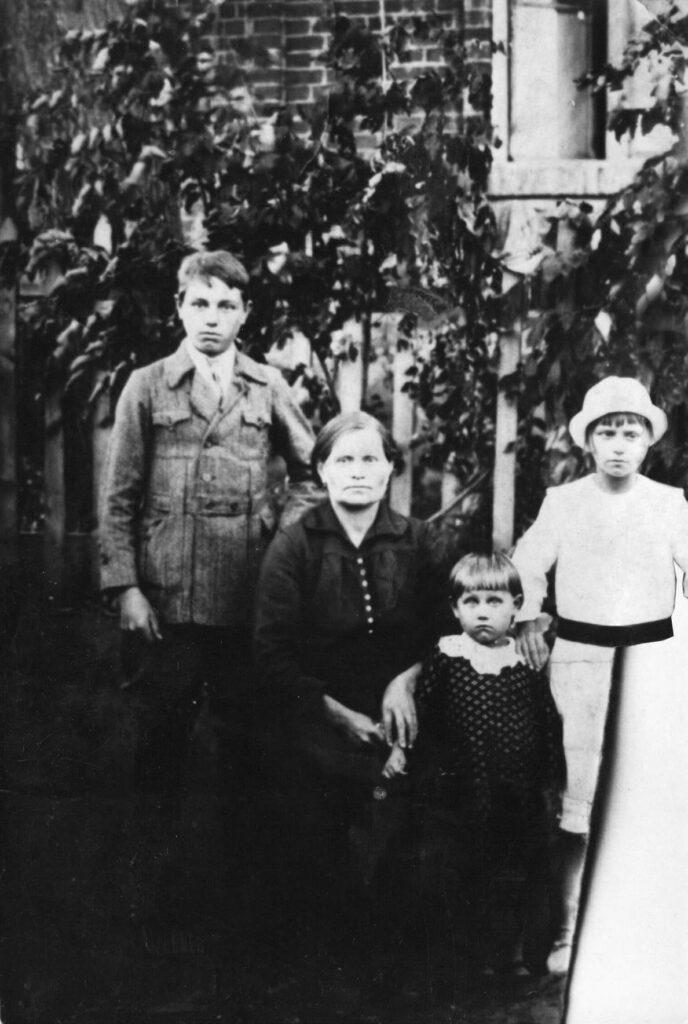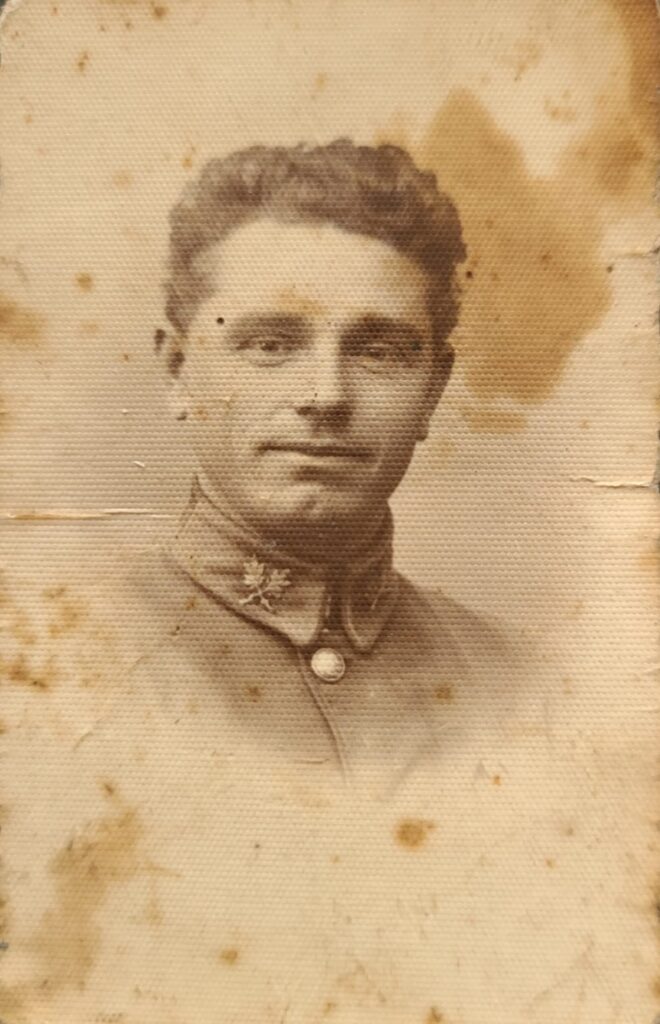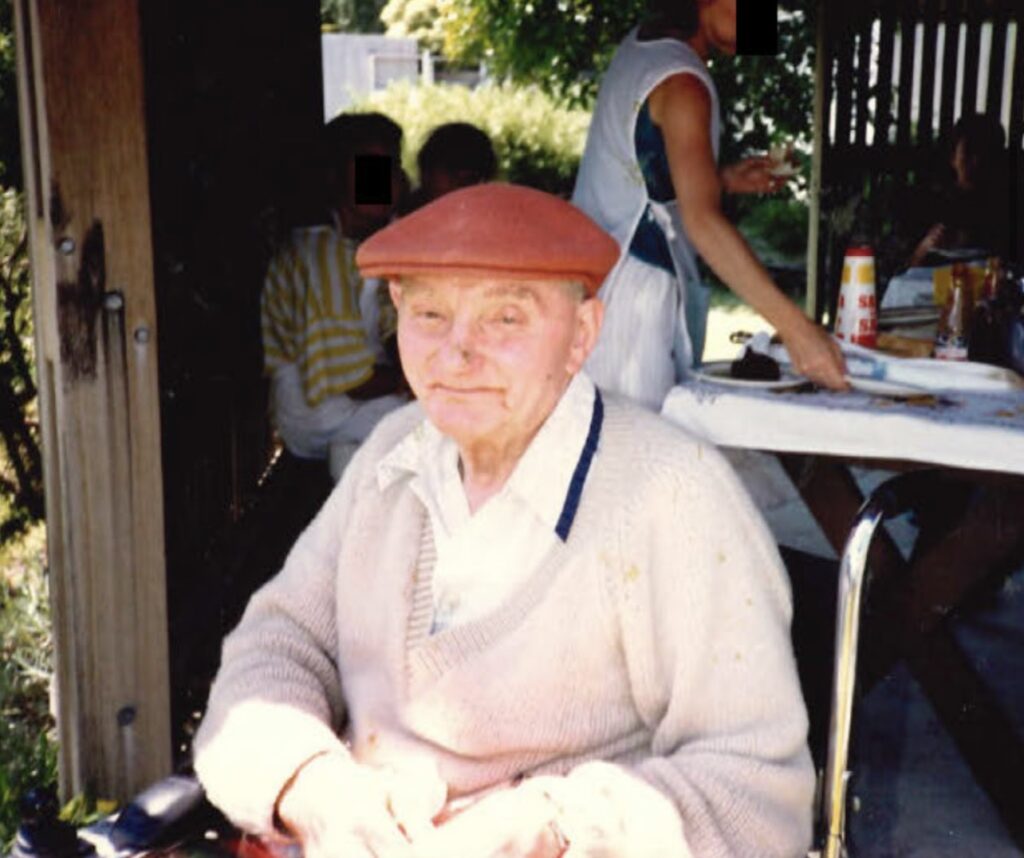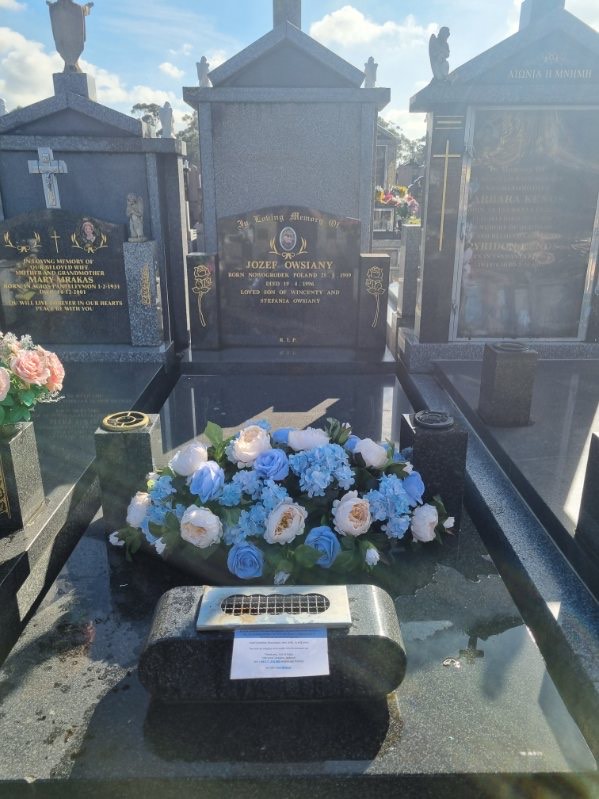World War II separated many families, many of them forever. Such a fate happened to the Owsiany family from vicinity of Nowogródek. The Owsiany’s oldest son, Józef, after escaping from Siberia spent most of his life alone in the antipodes. Until the end of his life he was convinced that none of his loved ones had survived the hardships of deportation.
Józef was a polish soldier defending Poland during the German Invasion in 1939 and was a Sybirak. He was born on May 25, 1909 in the town of Wsielub near Nowogródek. He was the son of Wincenty Owsiany and Stefania née Żurawiel. His father worked in the forester’s lodge called Teofilin located in the estate of Count Karol Marian O’Rourke. His mother looked after the house. When Wincenty began to fall ill, it was Józef’s role, as the oldest of ten siblings, to take over the duties as a forester and to support the family.
After military mobilization was announced in March 1939, Józef and his brother Mieczysław appeared in the army: Józef in the 79th Infantry Regiment in Slonim, and Mieczysław in the 20th Light Artillery Regiment in Baranowicze. Both brothers fought in the Polish Defensive War of 1939 during the war’s outbreak. After it ended, Józef returned home in early November. No one has heard of Mieczysław.
On February 10, 1940, the Owsiany family (Wincenty with Stefania and Józef’s siblings: Jan, Henryk, Stanislaw, Helena, Teresa and Jadwiga) were deported to Siberia in the first mass deportation. Only two sisters, Maria and Janina, avoided deportation, as by that time they were already married and did not live in the family home, although they remained in Wsielub.

The Owsiany family was sent to the specposelok Bojca in the Vologda region (in the northern European part of the Soviet Union). Like the other deportees, they lived in very difficult conditions: they could hardly fit (nine people!) in one tiny room, separated by boards from their neighbors (a large group of other deportees were housed in the same wooden barrack). To sleep in the night, they had to fit bunk beds in the room for the night, which were folded down during the day – otherwise it would have been impossible to move in the microscopic “room”. Whoever was able, had to work in the taiga forest cutting down trees. Even Jan, then 14 years old, preferred to work rather than go to school, as working meant a larger ration of bread. It didn’t matter that this work was very hard – the work brigades of several people were assigned a strict daily work quotas to perform, regardless no prior experience in logging work among many of the deportees. In addition, it was necessary to overcome sometimes many kilometers to the logging site, carrying work tools with them, trudging through deep snow in winter, working even in minus 30 degrees Celsius.
In 1943, the family heard that Colonel Zygmunt Berling had started the creation of a Polish army in the Soviet Union. Jozef and Jan went straight from the taiga to the army and were sent to the front. Jan in the ranks of the so-called Berling’s Army reached Berlin, and after the war returned to Poland.
On a contrary, Józef was taken into German captivity in 1944. As a war prisoner, he was incarcerated in Camp X B Sandbostel in northwestern Germany. After the camp was liberated by British troops (April 29, 1945), Józef was transferred to a transit camp in Marx near Wittmund (Lower Saxony). He did not return to Poland again: he was convinced that his loved ones had perished in Siberia, and secondly, his native land had been incorporated into the USSR after the war. A return to his native land was therefore impossible. Therefore, he chose to emigrate. However, he did not find his happiness in the world.

At the end of 1949 Józef Owsiany found himself in Australia. He was again sent to a camp, this time for refugees, called Bonegilla. As a result of a wound he sustained in the war, he lost his leg. With no chance of finding work and being completely alone, he found himself in a dramatic situation. Luckily, a family named Nanos took care of him. Even when Józef’s guardians changed their place of residence in 1970, they continued to be interested in his fate.
Józef remained in Australia for the rest of his life. He lived alone. As he became seriously ill in his older years, in March 1980 he was placed in a nursing home run by the charity Melbourne City Mission. He was the longest-living resident there. Complications from the amputation of his leg recurred years later. They resulted in the loss of his other leg.
Józef Owsiany died on 19 April 1996 and was buried in Fawkner Memorial Park Cemetery in Melbourne., Few graves away are buried his benefactors, Mr and Mrs Nanos and their daughter. His other daughter, Roula Nanos, who now works as a volunteer with the Australian Red Cross, remembers Józef from years ago, when she was a child. She and her father visited him regularly when he was living in a nursing home already. When she grew up, Roula became a social worker and continued to care for Józef. Her parents knew Józef’s life story because he had told them about his past, but apart from that he did not tell anyone. Until his last days, Józef didn’t know what happened to his relatives – they didn’t have any clue about his fate. After war Owsiany family returned from Siberia to Poland. Not all of them, because Stefania died on the way back and was buried somewhere in the Soviet Union. Wincenty and his children settled in Kotla near Głogów. For years, all the family searched for Józef and Mieczysław without success. All in vain. Almost 80 years had to pass before, as a result of renewed searches (queries in the Arolsen Archives, the POW Museum in Opole, the National Archives in Australia, among others), the relatives managed to learn about Józef’s fate and found his grave in the cemetery in Melbourne.


Through our portal, Marlena Owsiany-Jędrych, the granddaughter of one of Józef’s brothers – Henryk – would like to express her heartfelt thanks to Roula Nanos and her family, who took care of Józef until his death and buried him with dignity; as well as to Regina Chojna from the Prisoners of War Museum in Opole, who helped find Józef, Aleksandra Wysocka from the Polish Embassy in Sydney and Agnieszka Koźmic, who lives in Melbourne and helped find all the documents concerning Józef and determine his fate.
Compiled by: Anna Pyżewska
Photographs from the collection of Marlena Owsiany-Jędrych.



